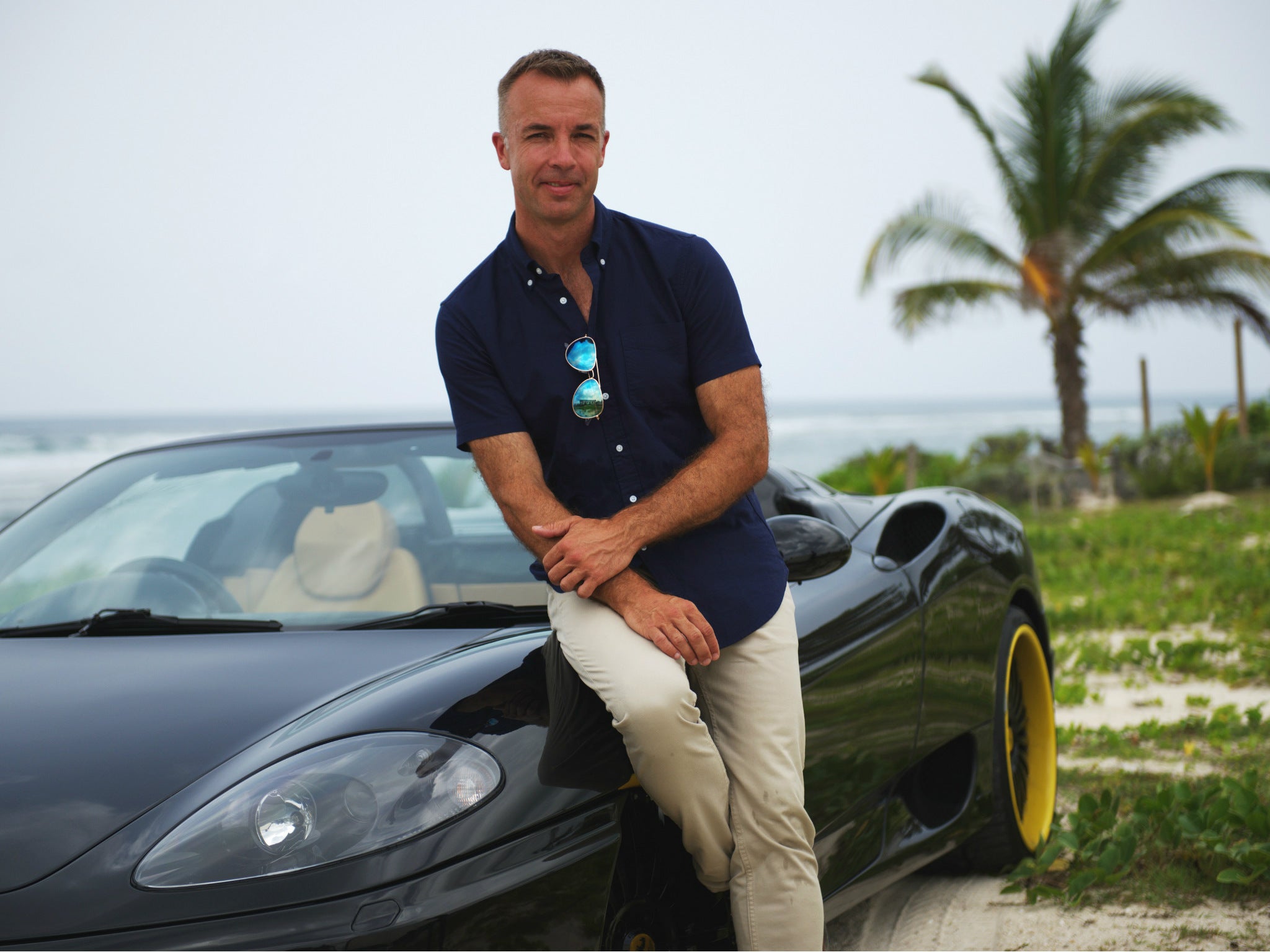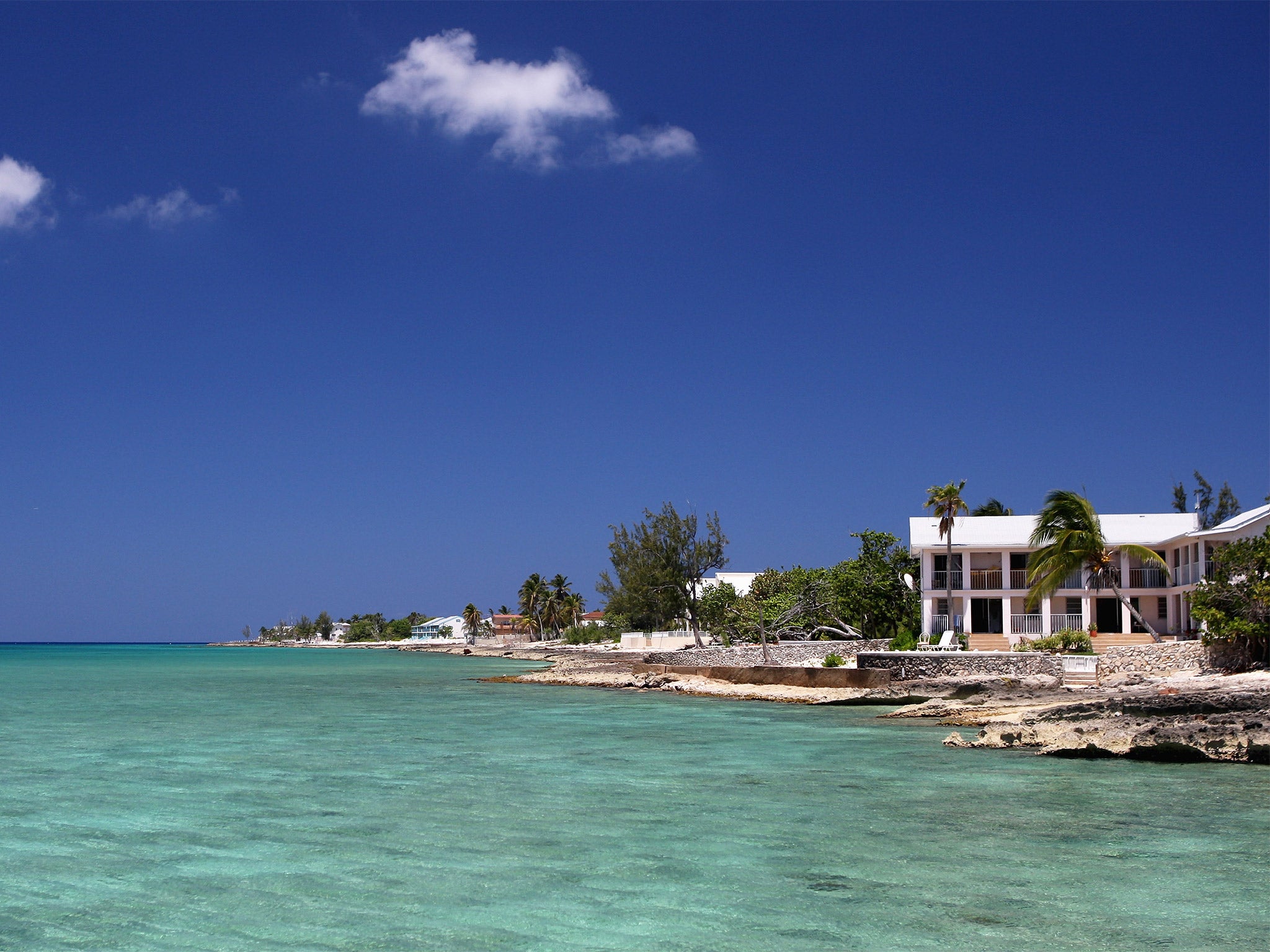Inside the strange, tax-free world of the Cayman Islands, where a pack of fish fingers costs £8.50
I visited the islands to be shown that shady Cayman is a thing of the past – when Manuel Noriega and Pablo Escobar, not Facebook and Tesco, were the names associated with the

Your support helps us to tell the story
From reproductive rights to climate change to Big Tech, The Independent is on the ground when the story is developing. Whether it's investigating the financials of Elon Musk's pro-Trump PAC or producing our latest documentary, 'The A Word', which shines a light on the American women fighting for reproductive rights, we know how important it is to parse out the facts from the messaging.
At such a critical moment in US history, we need reporters on the ground. Your donation allows us to keep sending journalists to speak to both sides of the story.
The Independent is trusted by Americans across the entire political spectrum. And unlike many other quality news outlets, we choose not to lock Americans out of our reporting and analysis with paywalls. We believe quality journalism should be available to everyone, paid for by those who can afford it.
Your support makes all the difference.The administrative powers of the Cayman Islands allowed me in to have a nose around a couple of months ago. I thought they might be nervous as I've done a few documentaries about inequality and corporations, but they were remarkably relaxed and gave me unprecedented access.
Their reason? They wanted to show the world that shady Cayman is a thing of the past – when Noriega and Escobar, not Facebook and Tesco, were the names associated with the islands. “If we do find corruption today”, the Governor assured me while sipping tea in her colonial mansion, “it's stamped out fast”.
But why open their doors to a British journalist at all? Because the world of tax havens, or international financial centres (IFCs) as they have rebranded themselves, is a fiercely competitive one: Switzerland, Monaco, London, even the tiny US state of Delaware compete with each to offer the most tax advantageous arrangements to global corporations. And having a lingering whiff of criminality around is just bad for business when you're looking to beat a rival to a Facebook or BP. Hence the BBC film crew and me.
So I landed, in 34 degrees heat, on an island dubbed the most notorious tax haven on Earth, expecting… what? A North Korean level of monitoring my every move? Or a complacent island of fat sunburnt accountants living it up at our expense?
Neither was true. Cayman is pretty small, the size of Bognor, and with a similarly sized population. Banks stand yards from the beach. Accountants go for a swim at lunchtime. It's pretty laid back. Tourists flock in in their thousands on day trips from the huge cruise ships, as they do on every Caribbean Island.

However, one thing is noticeably different: Cayman doesn't appear to have the same brutal inequality of wealth that other Caribbean islands do. Ironically, despite being accused of perpetuating global inequality, the whole place feels a lot more equal than its neighbours, or even parts of the UK.
Why? Much is to do with its small size. Also, there may be some rich accountants hanging around, but most people live on modest means. It's incredible to see how squeezed by the cost of living they are, despite the fact that no-one has to pay any tax. While I was visiting I met a woman who was paying a £1,500 a month mortgage – twice the UK average – on what was essentially a two-bedroom shack. And because of import duties simple items can be exorbitantly priced. A pack of fish fingers, for example, costs £8.50.
However in Cayman there's a great sense of duty towards the poor. Welfare only makes up 20 per cent of state spending (compared to 40 per cent in the UK), so charity fills the gap for those in hardship. I saw this in action when I met the woman with the sky high mortgage – she was on the verge of eviction, and relying on a Christian charity to find her a place to live.
But here's the most surprising thing I discovered. The rich accountants who are helping global corporations evade tax see the problem in much the same way a scathing Marxist economist criticising Cayman might: don't blame us, blame global capitalism.
Cayman, they say, is merely a cog in the highly efficient machine of free flowing trade that corporations take part in. And they've got a point: the British government set Cayman up as a tax haven in the 60s to provide a supplementary financial centre for London, so businesses could trade offshore. But now we’re complaining about it because it's been so good at what it does. It’s been estimated that the – perfectly legal – tax avoidance places like Cayman help facilitate keeps £20bn a year out of the Treasury.
So what do we do with tax havens? It's naive to imagine that closing the Cayman Islands down would result in a sudden windfall to the British Government and its Treasury. The business would just go elsewhere.
More profoundly, we as consumers are inextricably bound up in the equation: we get a cheaper package delivered to our door, a cheap loaf of bread at the supermarket, because companies can drive profit through a place like Cayman.
We have implicated ourselves, and this is now Cayman's ultimate let-out clause, and it's best defence. The picture is bigger than us, or them. It's about attracting boundless global capital, which knows no borders. “The question is no longer ‘Is tax avoidance going on?’” says Jude Scott, CEO of Cayman Finance, the body that represents the islands’ financial services industry, 'but is it patriotic?”
But even if we decide in the UK that tax avoidance isn’t patriotic, there’s nothing we can do. We need something far greater than patriotism: a global recognition of the problems caused by tax havens, and the resolve to stop them. It goes far beyond one country.
Cayman is an intriguing place, that raises profound questions about the void of responsibility that now exists at the heart of global finance. Any attempt to pin blame on one place is pointless. The root lies elsewhere.
One tax analyst on the island summed it up to me very simply, using the apt Cayman analogy of a fast car. Cayman is more mechanism than cause. “If you want to do something about global inequality, talk to the person driving the car, not the guys who pump up the tyres”.
Britain's Trillion Pound Island, BBC Two, will be broadcast at 9pm, Friday 22 January
Join our commenting forum
Join thought-provoking conversations, follow other Independent readers and see their replies
Comments